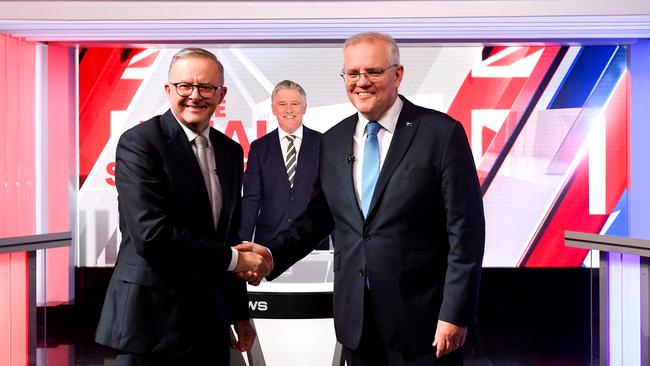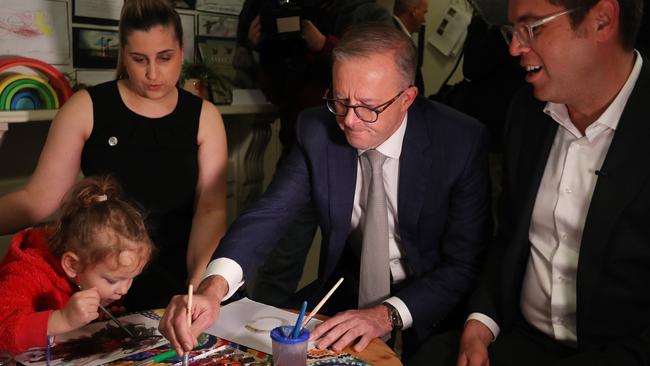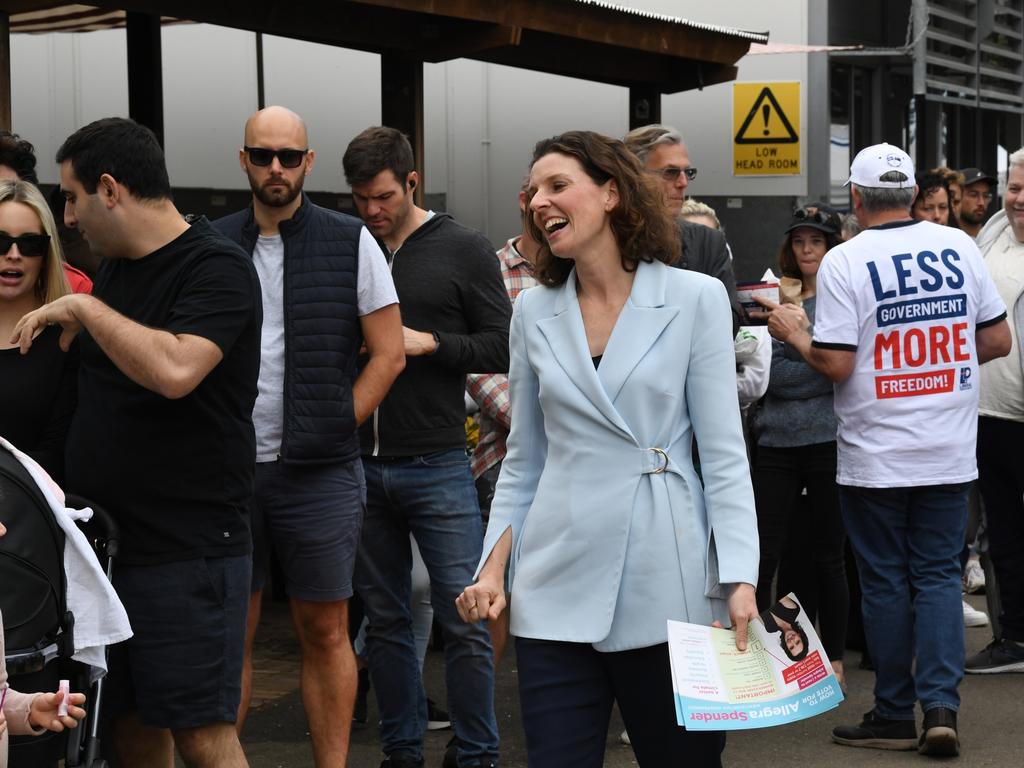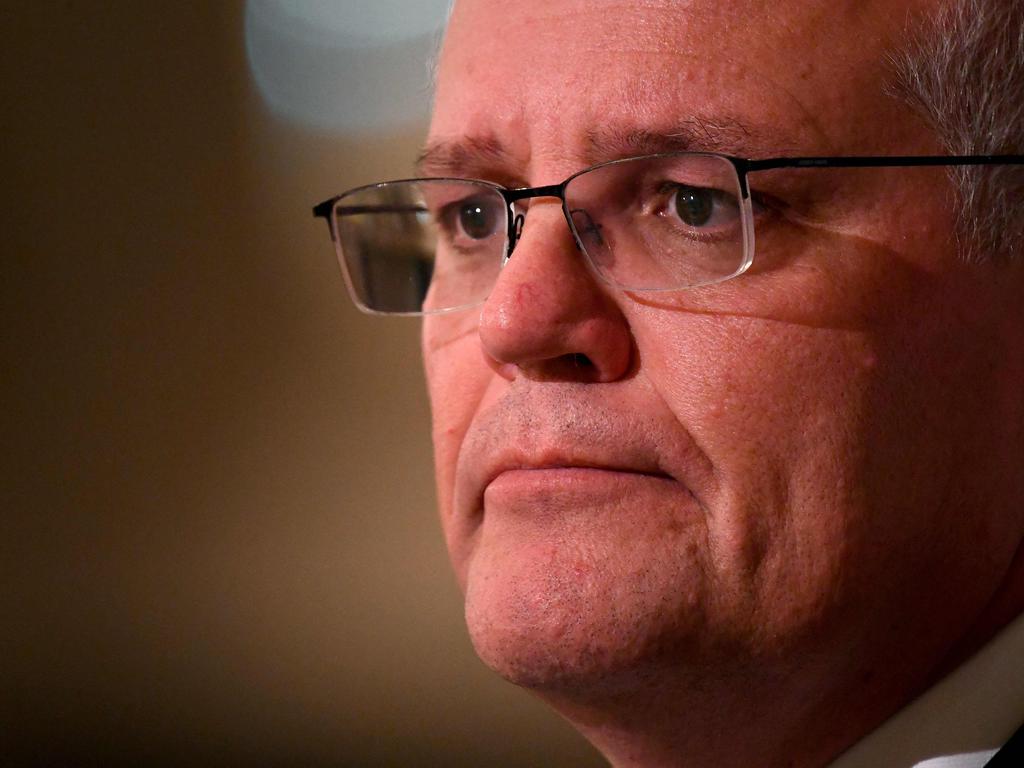Election 2022: Down to the wire with everything on the line
Both leaders must be bundles of nerves with the stakes so high and the outcome so vital.

This campaign has been about leadership more than anything else. This is the way the Coalition and Labor have framed the contest. Experience, character, competence, empathy is on the ballot. Albanese wants the election to be a referendum on Morrison. And Morrison wants the election to be about Albanese’s fitness to lead.
For one of them, this campaign spells the end of their political career. If Morrison leads his government to defeat, he will receive most of the blame due to his personal style and record, and will vacate the Liberal leadership and exit parliament. If Albanese loses, his strategy and performance will be seen as culpable, and Labor will look to a new leader.
The reason leadership looms so large is also due to our increasingly presidential-style politics. This is a long-run trend that has escalated since the 1960s. Leadership has always been the most important factor in politics. But the demands of modern media, with an emphasis on presentation, has made it more so. Much of the campaign has been about the daily media conferences and campaign visits of the leaders.
Morrison and Albanese are given more latitude than their predecessors. They are symbols of their parties. Their backgrounds, experience, values and personal style matters.
Voters often view the policies of the major parties through the prism of leaders: how they explained the policies, defended them, and whether they are persuasive.
The centralisation of power and authority into the prime ministership, making it the central institution in government, has also made leadership important. Most voters look to leaders and gauge their intelligence, competence, management style, cabinet and party leadership, and communications skills.
In short, they want to be reassured that the leader can handle the top job.

Both leaders have run their parties strongly and overseen campaign strategy. Morrison and Albanese are not weak leaders; they are highly focused political strategists with years of experience: Morrison as director of the NSW Liberal Party and Albanese as a NSW Labor Party official and parliamentary tactician. They know campaigns and they have had a big say in their respective strategies.
Morrison is facing his second election as prime minister and is hoping for another miracle victory. He has a real chance of succeeding, although his pathway through marginal seats is narrower than it was three years ago. His declining popularity, leadership approach and record are a drag on the Liberal vote.
It is why we have seen Morrison claim he has listened and learned, left behind the “bulldozer” approach, and will be a new-style prime minister for a new era. Will it be enough to convince voters? He wants to be judged on his overall good economic management and response to the pandemic but that is proving a big challenge.
Albanese has spent every day reminding voters about Morrison’s holiday to Hawaii during the 2019-20 bushfires, the slow vaccine rollout and lack of rapid antigen tests, the crisis in aged care, the tin-eared approach to women and allegations of sexual harassment and assault, and more. Albanese says Morrison does not take responsibility, makes excuses and blames others.
If Morrison wins, he will achieve what no prime minister has since John Howard in 2004: re-election. Victory will see him rank alongside Robert Menzies, Malcolm Fraser and Howard as a two-time Liberal election winner. If successful, senior ministers expect Morrison to quit sometime in the next term, becoming the only prime minister to depart on his own accord since Menzies. If he loses the election, it will vindicate Labor’s attacks on his character.
Albanese contests his first election as party leader. If Albanese succeeds, he joins the pantheon of Labor heroes – Gough Whitlam, Bob Hawke, Kevin Rudd (the 2007 version) – who have led the party to power from opposition. His small-target strategy will have been validated. He calls it a “smart” or “safe” policy agenda. But Labor has only won from opposition with a dynamic and popular leader with an animating and inspiring vision for change.
The past three years have witnessed the most extraordinary transformation of a political leader in Australian history. I have written about Albanese’s radical socialist past many times. That man, however, is long gone, with many of his policy views jettisoned in pursuit of power. He would never have imagined leading a party that supported income tax cuts for the wealthy and nuclear-powered submarines, let alone refugee boat turnbacks.
The old Albo who liked to fight Tories now preaches consensus, wants to work with business and unions, and bring Australians together. He would be the most experienced incoming Labor prime minister post-war. But his campaign blunders have not inspired confidence. Governing is harder and he will be tested leading a cabinet and party. If Albanese loses, the bloodletting will be epic and a large field will contest the Labor leadership.
This election will test the durability of the effective two-party system. The rise of the so-called teal independents, along with fringe minor parties on the left and right, could produce only the second minority parliament since 1943. Both Labor and the Coalition parties face an existential moment: an identity crisis as tribal loyalties fade and political allegiances fragment.
This election comes down to the wire. Nobody, not even the most seasoned strategists, can confidently predict the outcome. Morrison has a leadership advantage over Albanese but voters are tired of him and his government. They are not fully sold on Albanese or Labor. It is a contest between a leader whom many voters do not like and a leader whom many voters do not know. If only a Hawke or a Howard were on the ballot.








When the polling booths close and vote counting begins, Scott Morrison and Anthony Albanese can be forgiven for being a touch nervous. Much is at stake, win or lose, for both men. This has been a top-down, leader-centred, presidential-style campaign. They will be judged very favourably if they win and very harshly if they lose.